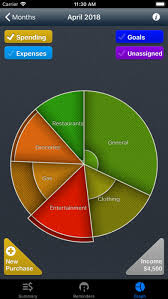
Even the Energizer bunny needs to recharge now and again. When your battery runs low, try one of these creative pick-me-ups.
Taking an occasional mental-health day off from work is a terrific way to bounce back from ordinary stress and fatigue. But a frequent need for recovery days might be a sign of serious burnout. Although you may be tempted to ignore the symptoms, don’t. Burnout not only takes a psychological toll on women, but also puts them at greater risk for developing inflammation-related diseases like diabetes, heart disease, and stroke.
How do you know you’re suffering from burnout? Low energy, snarkiness toward co-workers, that sinking feeling every time your alarm clock rings—these are some of the classic symptoms. (For others, see “Do You Need To Break Away?” below).
If these signs sound all too familiar, a one-day break may not be enough. Finding other ways to chill out or rev up could be just what you need to get your head back into the game. Try using your summer getaway to re-think your work situation and make plans for a happier, more energetic future. Here are four ideas.
1. Take a “My Favorite Things” break.
Fill your vacation with activities you find truly relaxing and rejuvenating; go on a hike, for instance, alone or with your family in tow. Schedule lunches to reconnect with friends; talking with pals and loved ones may help suss out the cause of your burnout. Is it the people, the hours, the pressure? The answer just might bubble up while you’re antiquing with your mom. Whatever you do, though, stay in town. “Flying somewhere to hang out on a beach provides a change of scenery, but it may not be the best way to reflect on your life,” says Julie Jansen, career coach and author of You Want Me to Work With Who? Eleven Keys to a Stress-Free, Satisfying and Successful Work Life.
2. Spend time helping others.
If your burnout is more about ennui than exhaustion, shake things up a bit. Use your break to rescue turtles in Costa Rica. Or track desert elephants in Namibia. Or help rebuild trails in the Northern Cascades. A volunteer vacation can leave you feeling inspired and fulfilled. Most volunteers work from 1 to 3 weeks. And costs will vary (from less than $500 a week to more than $2,000), depending upon the location. You can book yours through Volunteer Adventures, Globe Aware, Global Volunteers, or the American Hiking Society.
3. Take a veggie vacation.
Staying at home for a few days and simply vegging out might be just what you need. Think about it: When’s the last time you woke up and had absolutely nothing on your agenda? Why not send the kids off to camp for a week, inform your mate that you’re off duty, and just be. Read a book (or three). Go to the movies. Hire a housekeeper and spend the day at a spa. Do nothing until you can no longer stand doing nothing. Then let your mind wander until you come up with creative ways to make long-term changes that will banish your burnout for good.
4. Try out your dream job.
Maybe you’re burned out because you’re unhappy with your career choice—you’re a marketing director but you’ve always dreamed of being a professional matchmaker, for example. Why not use some vacation time to test-drive a new career? Author Katy McColl’s Should I Do What I Love? features “How I Did It” interviews with dozens of creative pros, from clothing designers to wedding planners to DJs. Her tip for burned-out worker bees: Spend a few days shadowing someone who’s doing a job you’d like to try. “Shadowing is the best way to find out if the work, in fact, suits you,” McColl says. “Having performed various jobs and shadowed people in others as a reporter, I know I can do anything … except touch a stranger’s scalp, which is why you’ll never find me working at Supercuts.” But don’t spend 40 hours a week of your vacation on informational interviews and updating your resume, Jansen warns. “It’s got to be a rejuvenating mix.”
Do you need to break away?
Burnout is usually associated with stress on the job, but its source can be any overwhelming aspect of your life. Fortunately, the signs of burnout are easy to recognize—once you know what to look for. Some of the common symptoms are listed here. If at least three from the top category or any from the bottom apply to you, it may be time to take a recharging time-out.
- On your own time, or anytime– Feelings of dread, depression, or anxiety about having to go to work
– Lackadaisical, apathetic attitude, even toward things you once cared about
– Ignoring or snapping at people you care about
– Feeling helpless, frustrated, and disillusioned
– Difficulty sleeping
– Increased alcohol consumption
– Forgetfulness
– Clumsiness and/or accident-proneness - On the job
– Increased absenteeism
– Low job performance and low job satisfaction
– Cynicism about colleagues or the “powers that be”







